The ‘What a Character!’ Blogathon: Jay C. Flippen
It was once said that Jay C. Flippen had “the face of ill-assembled grandeur – as if Mount Rushmore had been taken apart stone by stone and put back together again by a well-meaning idiot.” This colorful description notwithstanding, the burly character actor was a man of fortitude and determination – a veteran of vaudeville, radio, theater, screen, and television, Flippen continued to appear in feature films and television shows even after his leg was amputated late in his career. With performances in nearly 60 films alongside such stars as Spencer Tracy, Joseph Cotten, and James Stewart, Flippen was also a contributor to five films noirs: Brute Force (1947), They Live By Night (1949), The People Against O’Hara (1951), The Las Vegas Story (1952), and The Killing (1956).
Flippen (“Yes, that’s my real name,” he said once. “Who would change their name to Jay C. Flippen?”) was born in Little Rock, Arkansas, on March 6, 1899 (some sources say 1900). Possessing an affinity for performing from an early age, Flippen gained experience in local talent shows produced by his mother, who also taught ballroom dancing. By the time he reached his teens, he was substituting for acts that failed to appear for their engagements at the town’s Majestic Theater.
“Whenever someone on the bill got sick, the manager called in my mother and she put the finger on me,” Flippen once recalled. “A format? Material? Who needed them? There were a million jokes around.”
At the age of 16, while performing in blackface, Flippen’s antics caught the eye of the proprietor of the traveling Al G. Fields Minstrel Show. Fields hired Flippen as an understudy, and after a year, he was a regular performer with the act. Later, Flippen worked with famed comedian Al Jolson, then moved on to burlesque.
“We did 14 shows a week, a matinee, and an evening performance daily, with a new show every week,” Flippen said. “Because of this, they were a great training school for an acting career.”
It’s believed that Bert Williams, a famous black comedian of the era, got Flippen his first New York stage role in 1920 in Broadway Brevities. Before long, Flippen was signed by the famed theatrical producers, the Shuberts, and by the mid-1920s, he had achieved star status, appearing in 1926 alongside Jack Benny in The Great Temptations, and the following year with Texas Guinan and Lillian Roth in Padlocks of 1927. Over the next few years, Flippen would also work with such greats as Fanny Brice, Sophie Tucker, and Elsie Janis. (Click below to hear Flippen performing “Out Where the Blues Began” in 1929.)
Flippen expanded his performing repertoire to include radio in 1930, utilizing his comedic talents on his own show, The Flippen-Cies, which established him as a top emcee. He was also heard on such broadcasts as Col. Flippen’s Amateur Hour, Earn Your Vacation, Battle of the Sexes, and Correction Please, and – in his spare time – took up broadcasting New York Yankee baseball games. In years to come, Flippen would utilize his talents as a toastmaster to host four Birthday Balls for President Franklin D. Roosevelt and the “roasting” of Milton Berle at Hollywood’s Masquers’ Club, as well as serving as Abbot of the New York Friars Club.
In 1934, Flippen turned to the big screen, appearing in small roles in Universal’s Million Dollar Ransom, with Edward Arnold and Phillips Holmes, and Fox’s Marie Galante, starring Spencer Tracy. He promptly returned to New York, however, resuming his busy career on radio and on the stage. During the war years, as a leading personality in the American Guild of Variety Artists, Flippen headed several nationwide tours to raise money for the Red Cross. He did not return to films until more than a decade later when, in 1947, friend and producer Mark Hellinger cast him as a prison guard in Brute Force, his entry into film noir. This feature focused on a planned prison break headed by the inmates of a single cell in a men’s prison. Flippen’s minor role was mostly overlooked by critics, but the film was lauded upon its release; in a typical notice, the reviewer for Newsweek called it “a forceful, even sadistic melodrama with moments of terrifying action and a climax that will raise the hackles on your neck.”
With his first role in a major film behind him, Flippen decided to settle in Hollywood, but not only because of his prospects on the silver screen. Shortly after the release of Brute Force, a writer for MGM by the name of Ruth Brooks was searching for the lyrics to an old vaudeville tune, and was reportedly told, “Get in touch with Jay C. Flippen. If he doesn’t know’ em, no one does.” Brooks followed the advice and a few months later, she and Flippen were married. Their marriage would last until Flippen’s death in 1971, and Ruth Brooks Flippen would later become a well-known television comedy writer, penning episodes for such shows as Bewitched, The Brady Bunch, My World and Welcome to It, and Gidget. (The couple would never have children, but they did have two beloved basset hounds named Grand and Glorious – last name: Technicolor.)
Meanwhile, Flippen was next seen in a variety of films including Intrigue (1947), a cliché-ridden adventure starring George Raft; Oh, You Beautiful Doll (1949), a pleasant musical biography of songwriter Fred Fisher; Down to the Sea in Ships (1949), a rousing 19th-century sea adventure; and They Live by Night (1949), his second film noir. Here, Flippen played a featured role as T-Dub, a hardened criminal who escapes from prison with two fellow inmates, Chickamaw (Howard Da Silva) and Arthur “Bowie” Bowers (Farley Granger). The film opened to raves from audiences and critics alike, and Flippen was singled out by Variety for his “top-notch . . . delineation of a criminal.” Interestingly, Flippen recalled years later that he was not the first choice for the role of T-Dub.
“[Director Nicholas Ray] had a helluva time talking [RKO head] Dore Schary into it,” Flippen told TV Guide in 1962. “’Flippen? Nah! He’s a comic, everybody knows that,’ Schary argued. ‘Assuming he can act – which I seriously doubt – he certainly couldn’t play the scene where he has to slap Farley Granger around.’ Anyway, I tested – with Farley. I told him, ‘Kid, you don’t mind if I beat the socks off you, do you?’ Well, the picture was a big smash . . . but for years, I couldn’t get a comedy part. ‘Flippen? Nah!’ they told my agent. ‘I saw him slap Farley Granger around.’”
After this superb film, Flippen was seen in a series of well-received features, including Winchester ’73 (1950), a first-rate western in which he portrayed a calvary sergeant; Two Flags West (1950), another western, this one starring Joseph Cotten and Linda Darnell; and Flying Leathernecks (1951), a war-time drama starring John Wayne and Robert Ryan. In the latter film, Flippen was featured prominently in a running gag as an army sergeant who steals from other companies to ensure that his own outfit is well-equipped. Also during this period, Flippen added two more noirs to his repertoire, The People Against O’Hara (1951) and The Las Vegas Story (1952). The People Against O’Hara tells the story of a former defense attorney (Spencer Tracy), forced out of practice because of a drinking problem, who is lured back to defend a boy accused in a fatal shooting. Flippen played a Swedish seaman who was a witness to the crime. Flippen’s next noir, The Las Vegas Story, depicts a plethora of intertwined plot elements, including a wealthy man desperate to raise cash to cover up his role in an embezzlement scheme; a reignited affair between a police lieutenant and his former lover; and a private detective chasing a $10,000 necklace. Flippen turned in a rather comical performance as the local sheriff who is characterized by his fondness for trout fishing and his overinflated sense of self-importance.
During the next several years, Flippen appeared in films of varying quality. Some were outstanding, including Bend of the River (1952), a well-done western with James Stewart and Arthur Kennedy; The Wild One (1953), the classic rebellious biker film starring Marlon Brando; and Oklahoma! (1955), the popular musical starring Gordon MacRae and Shirley Jones. Others ranged from mediocre to downright lousy, like East of Sumatra (1953), a tired bit of escapism starring Jeff Chandler; and The King and Four Queens (1956), a weak western starring Clark Gable. But Flippen rebounded from these forgettable features with his final film noir, The Killing (1956).
This superb offering focuses on an intricate racetrack heist planned by ex-con Johnny Clay (Sterling Hayden) with the assistance of a motley crew of characters that include a mousy racetrack cashier, a bartender, and a beat cop with a gambling problem. Flippen played Marvin Unger, a bookkeeper with more than a passing fondness for Johnny.
In addition to his cinematic output during the 1950s, Flippen also began appearing on the small screen, playing guest spots in series from Rawhide to The Dick Van Dyke Show, and starring as the cantankerous captain Homer Nelson on the military sitcom Ensign O’Toole, which ran from 1962 to 1963 on NBC-TV. His feature film credits during this time included the underrated Wild River (1960), starring Montgomery Clift and directed by Elia Kazan; How the West Was Won (1962), a sweeping western drama with an all-star cast that included James Stewart, Henry Fonda, Debbie Reynolds, Thelma Ritter, and Gregory Peck; and Cat Ballou (1965), a western spoof starring Lee Marvin in a dual role. In 1963, while filming the later feature, Flippen suffered an experience that threatened to end his career. After injuring his right leg while opening a car door, Flippen developed a sore that would not heal. The actor tried to treat it with home remedies, but an infection set in and the leg became gangrenous. Upon completing his role for the film, Flippen was hospitalized for 10 weeks.
“The doctor told me I could stay in the hospital and be a parsnip, or I could lose my leg,” Flippen said. “So I lost my leg.”
Flippen remained in the hospital until 1965, during which his weight dropped from 195 pounds to 105. He later admitted that he feared he would never act again.
“My wife gave me my key line,” he said. “I said, after the operation, wallowing in self-pity, ‘How am I going to act with one leg?’ She looked at me and said, ‘Jay, you don’t act with one leg.’ That gave me buoyancy.”
Following his release from the hospital, Flippen practiced walking daily at home with his prosthetic limb and underwent training three times a week at UCLA. A year later, he was seen in his first acting role since the amputation, a guest spot on The Virginian, playing his part from a wheelchair. He followed this appearance with a made-for-television movie, Fame is the Name of the Game, starring Anthony Franciosa and Jill St. John.
“After I did my first scene, I looked around. Everybody was crowding around the set trying to see the old boy working again,” Flippen said in a 1966 interview. “And when the director called ‘cut,’ a great big hand went up for this old-timer. I’ve had some pretty good receptions at the old Palace Theater, but this spontaneous ovation on the sound stage really got me – right here.”
Flippen continued to act during the next few years in a number of television movies as well as such feature films as The Spirit is Willing (1967), a haunted house comedy starring Sid Caesar; Firecreek (1968), a James Stewart vehicle that was vaguely reminiscent of High Noon (1952); Hellfighters (1968), based on the life of oil firefighter “Red” Adair; and The Seven Minutes (1971), a talky drama about a movie star who is brought to trial for writing an allegedly pornographic novel. It would be Flippen’s last film.
On February 2, 1971, just days after receiving a “clean ticket” by his doctor, Flippen suffered a brain aneurysm while watching television at home. He died the following day at Cedars of Lebanon Hospital in Hollywood, a month before his 72nd birthday. The eulogy for his memorial service was conducted by Flippen’s longtime friend, comedian Milton Berle.
With his roots in vaudeville and burlesque, and his successful conquering of every medium of entertainment, Jay C. Flippen truly enjoyed one of Hollywood’s most colorful careers. Known for his humor and wit, Flippen’s contributions to the annals of film are outmatched only by his courage following his potentially career-ending amputation and his determination to resume his livelihood. With typical modesty, Flippen always credited his wife, Ruth, with supplying him with the fortitude to forge ahead.
“All that time,” Flippen said once, “she never let me forget that I’m an actor first – and a man somewhere down the line.”
———
This post is part of the “What A Character!” blogathon, hosted by Paula’s Cinema Club, Once Upon a Screen, and Outspoken & Freckled. Click their sites to read the many great posts about some of Hollywood’s most memorable character performers.









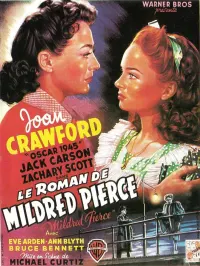




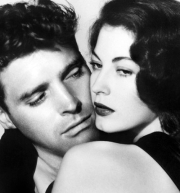
















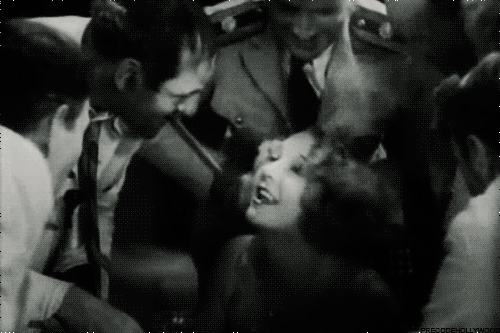


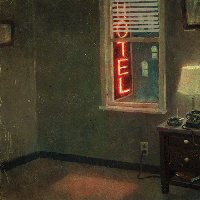
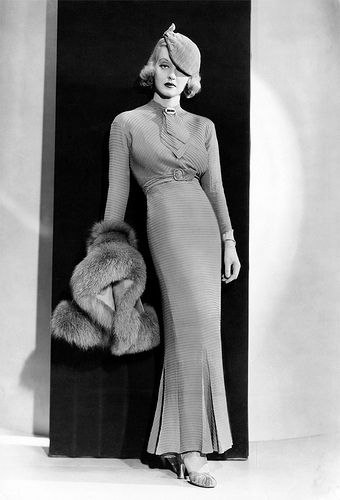



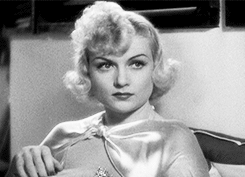
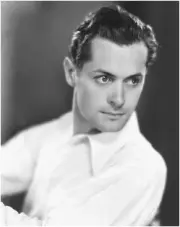
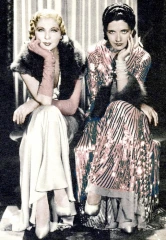





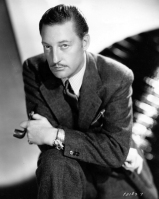




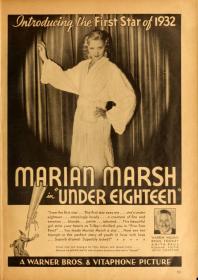
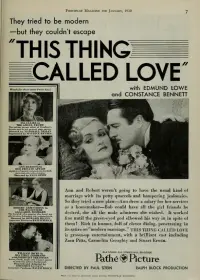

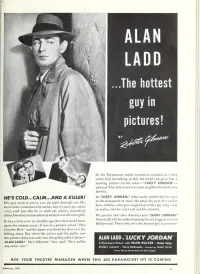
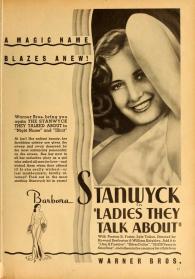

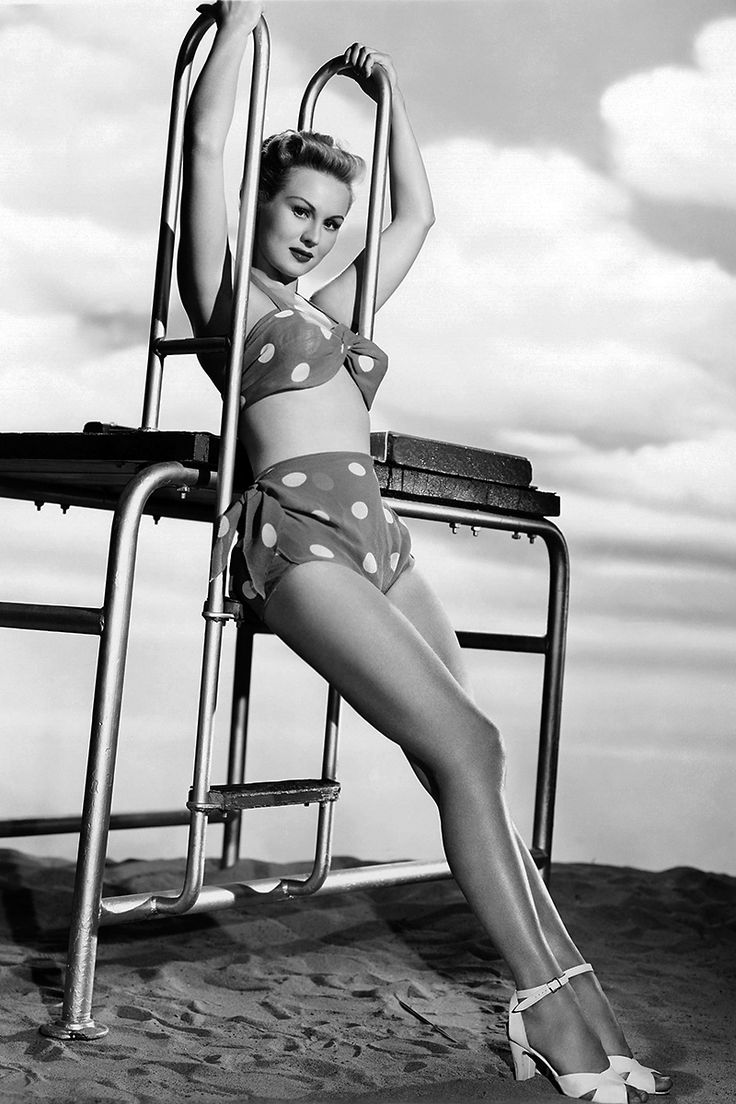







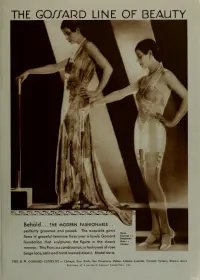

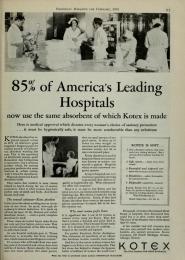

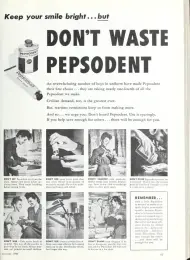


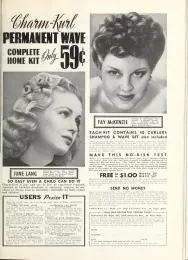





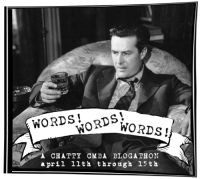

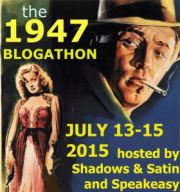
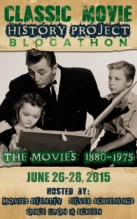
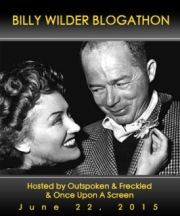


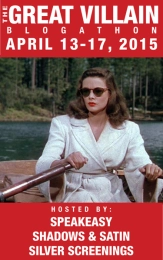


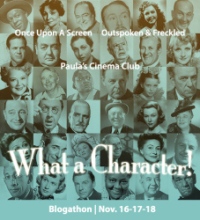



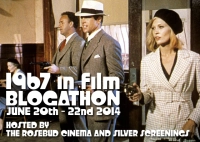


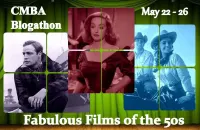
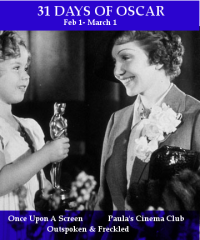
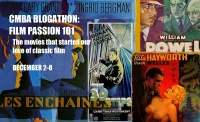







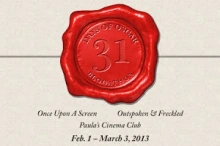

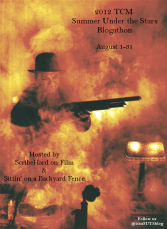


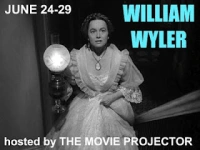





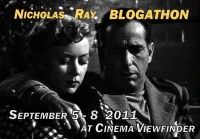

That’s a terrific tribute to Jay C – have been a fan ever since seeing him in Bend of the River and The Far Country: two fine Westerns to whose excellence he contributed significantly. He brought warmth and depth to those parts.
That was an extraordinary read! Almost every sentence was new to me. Thank you so much for this great insight into a really interesting person and wonderful actor.
Thank you so much, Wesley! He seemed to be one of those actors that you wish you could have known in real life. A family man, a real friend, and a possessor of true grit – and talented, to boot!
OMG – how I love this! I particularly love to read about player who have their roots in vaudeville and then go on to a screen acting career. They seem to somehow be bigger than life and not afraid to change it up on a dime. What stories they could tell! I really enjoyed reading about Flippen’s rich history, since he is chiefly etched in my mind as Chief Petty Officer Nelson in the silly and brief 60s TV show “Ensign O’Toole.”
Thank you, Marsha! I was introduced to Flippen through his noirs and it was such a revelation when I learned about his successful career in vaudeville. It’s a testament to his very real and multi-talents that he was successful in so many mediums!
Terrific article! What an extraordinary life. I too knew Jay C. Flippen first from Ensign O’Toole.
Thank you, Michael! He did have such an amazing life, so full of rich experiences. I wish he’d had a memoir – I love the way he told that story to TV Guide about Dore Schary not wanting him for the part in They Live By Night!
Great piece! So interesting to hearJay sing and hear about his early days on stage. I always associate him with films of the 50s.
Thank you, Vienna! I first learned about his vaudeville career at a TCM film fest several years ago. It was so amazing to see him singing as a young man. He was quite a guy!
[…] at Shadows and Satin honors Jay C. Flippen, “the burly character actor…a man of fortitude and determination – a veteran of […]
11th Annual What A Character: Evening Edition – Paula's Cinema Club said this on January 8, 2023 at 7:02 pm |
I loved, LOVE this tribute to Jay Flippen. I didn’t realize he lost a leg, or that he did so much work on television.
The names of their dogs is BRILLIANT: Grand and Glorious Technicolor. I never woulda thought of it.
Thank you so much, Ruth! Flippen had such an interesting life — enough for a couple of lifetimes! And I love the dogs’ names, too. Brilliant.
This is a wonderful tribute to Jay Flippen. I have to admit I didn’t know much about his early career on vaudeville! He certainly did a wide variety of material–I recently rewatched the Dick Van Dyke Show episode “The Return of Happy Spangler.” Even so, when he comes to my mind it’s always his noirs I think of. He was great in those!
Thank you so much! I recently saw the Happy Spangler episode, too! (I’ve been having Dick Van Dyke on all day while I write.) You’re so right — he was great in his noirs.
[…] and I’m immensely grateful to editor-in-chief Karen Burroughs Hannsberry (of the blog Shadows and Satin) for the surprise […]
I’m in print! – The Classic Film Connection said this on January 9, 2023 at 6:00 pm |
“The face of ill-assembled grandeur – as if Mount Rushmore had been taken apart stone by stone and put back together again by a well-meaning idiot.”
Lord, I wish I’d written that line! It reminds me of the kind of street poetry you’d read in the Daily News while sitting in the Automat with a cup of coffee and a cheese danish circa 1948.
I loved everything about this post — who knew the blunt instrument of THE LIVE BY NIGHT began as a baggy-pants comedian?!
LOL — I wish I’d written it, too! (Mmm, cheese danish in the Automat. . .) I’m going to keep scouring the internet until I can find a clip of Flippen from his vaudeville days — it’s a real trip!
Wow, Mr. Flippen had some serious fortitude. Thanks for this great review. 🙂
Article, I should say. Oh well.
Thanks so much, Rebecca!